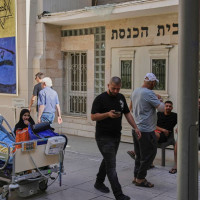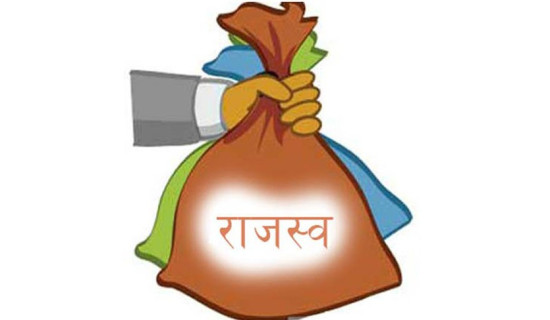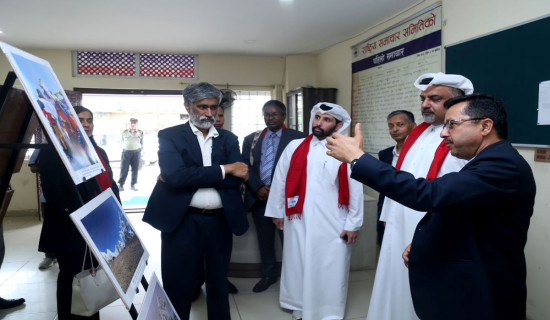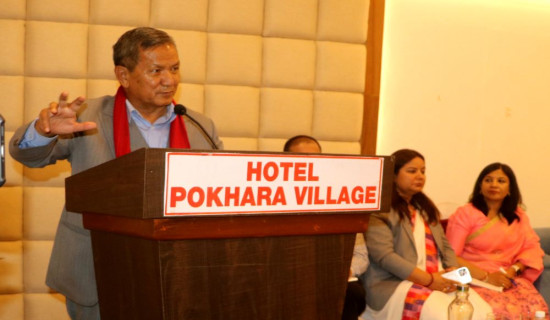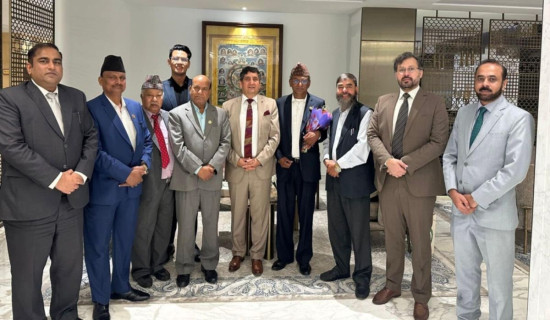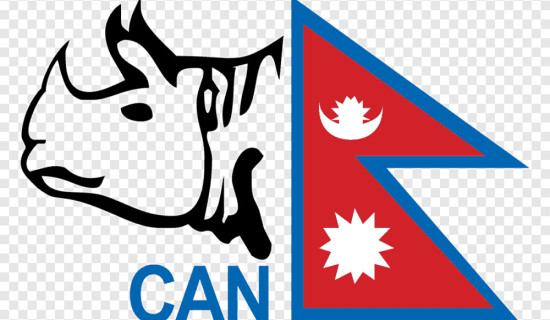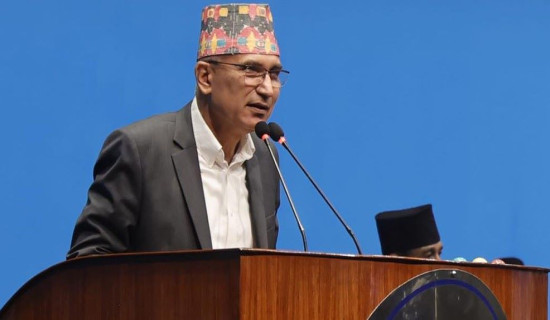- Friday, 20 June 2025
'TRC and CIEDP must win victims' trust'
By A Staff Reporter, Kathmandu, May 21: The families of those who disappeared during Nepal's armed conflict have expressed doubts that the newly formed Truth and Reconciliation Commission and the Commission for the Investigation of Enforced Disappearances will be victim-friendly. They have accused the government of forming these commissions unilaterally without coordinating with victims and stakeholders. Despite their disagreement with the process, the families say they are in a "wait-and-see" position, hoping for a conclusion to the long-delayed transitional justice process.
At a programme organised in Kathmandu on the occasion of the 16th memorial day of the disappeared persons, family members urged the commissions to urgently address their long-standing pain and deliver justice sincerely.
Ekraj Bhandari, the president of the Conflict Victims Society for Justice, emphasised that the country’s political changes were made possible by the contributions of those who disappeared during the conflict. Therefore, he argued, the government must take responsibility for their families.
He stated, “All institutions formed under the current laws have become ineffective. There are doubts about the newly formed commissions. We don’t want the investigation process to be prolonged. We are still hopeful, but political leaders have shown no genuine interest in concluding the peace process."
CPN (Maoist Centre) leader Himal Sharma stressed the importance of impartial investigation into all complaints submitted to the truth commission. He asked, “Does the government have the courage to speak about the disappeared? Where is the detainee taken to Bhairabnath Battalion ? he asked. This issue should not be further complicated or delayed, he said.
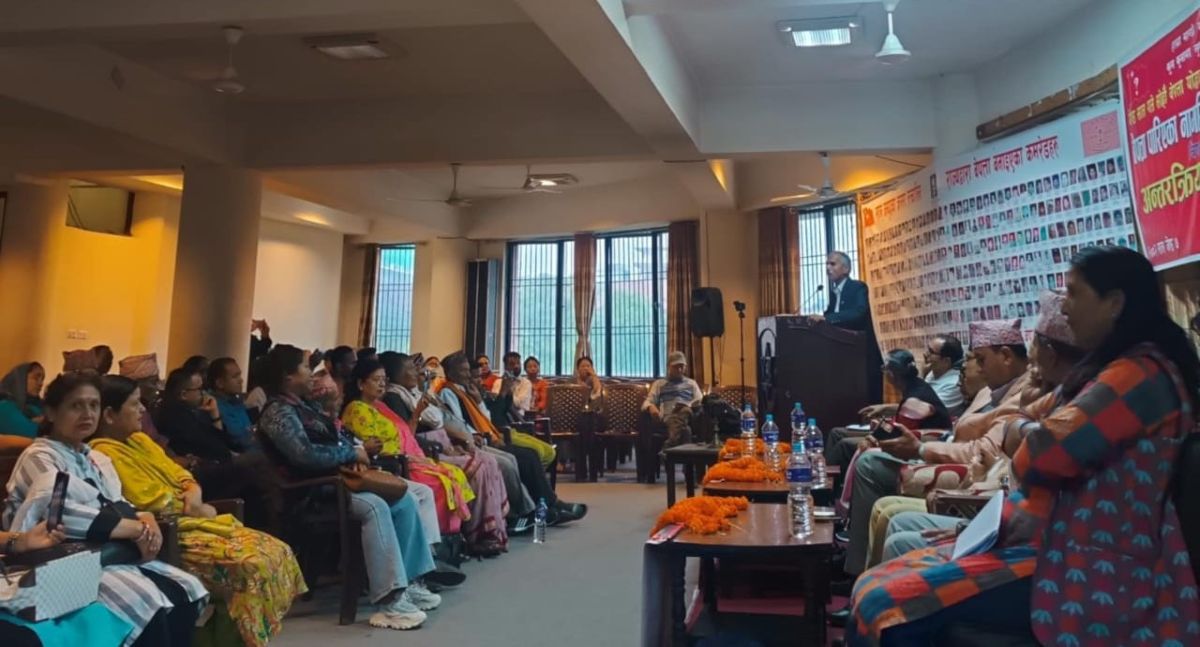 Former Law Minister Govinda Bandi remarked that the issue of enforced disappearances has always been neglected by the state. He criticized Nepal’s transitional justice process, saying it has been reduced to a ladder for political gain.
Former Law Minister Govinda Bandi remarked that the issue of enforced disappearances has always been neglected by the state. He criticized Nepal’s transitional justice process, saying it has been reduced to a ladder for political gain.
He said that even when the initiative to investigate past atrocities was taken, it was not with the victims in mind but to fulfill political objectives.
Similarly, Krishna Bhakta Pokharel, a leader of the CPN-UML and member of the Parliamentary Law and Human Rights Committee, admitted that the state has failed to take responsibility for the disappeared.
He added, “More important than the law itself is its implementation. It's not necessary to always be skeptical let them work in commission. If there’s truth, respect, cooperation, and collaboration, this issue can be resolved quickly.”
Nepali Congress leader and Chair of the State Affairs and Good Governance Committee, Ramhari Khatiwada, emphasised that all citizens who disappeared must be located. He urged political leaders KP Oli, Sher Bahadur Deuba, and Pushpa Kamal Dahal, Prachanda to unite not just for power-sharing but also for sensitive issues like this.
He also suggested that the state should create an environment where the anniversary of the People's War can be observed as a remembrance day for the martyrs and the disappeared.
Renuka Chaulagain, Chairperson of Chaunri Deurali Rural Municipality and a member of a martyr and disappeared family, expressed concern that the government has not honored the contributions of the martyrs and disappeared individuals.
Disappearance Memorial Day is observed in remembrance of individuals like Dandapani Neupane, Milan Nepali, Navin Paudel, and Kamala Sharma, who were forcibly disappeared by the state from Kathmandu on May 21, 1999.
The government has appointed officials at TRC and CIEDP last week.

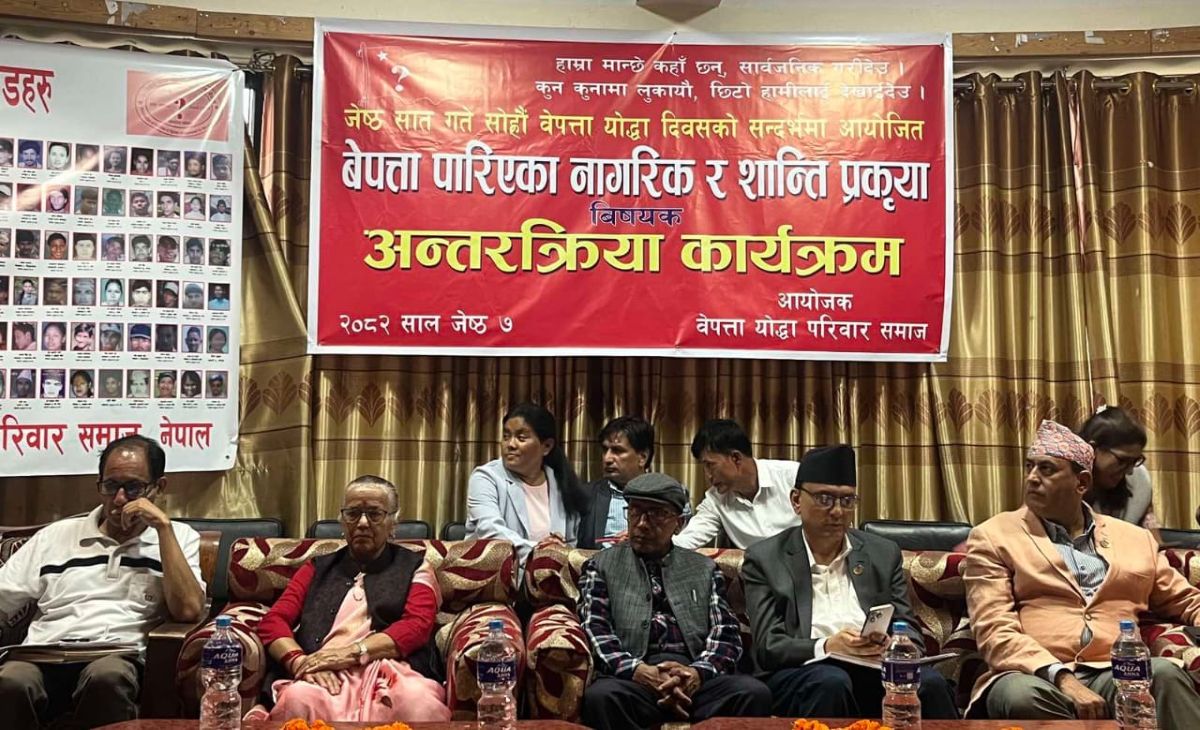

-original-thumb.jpg)



